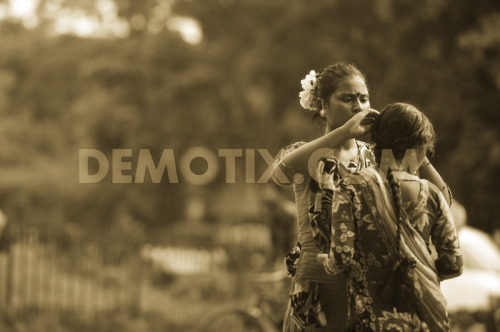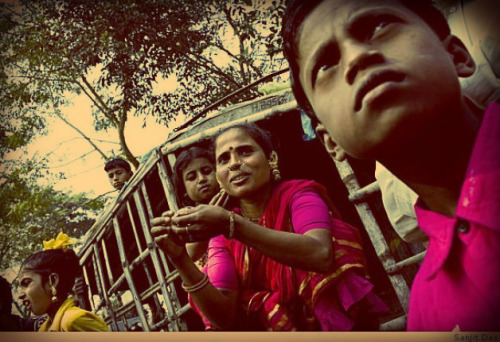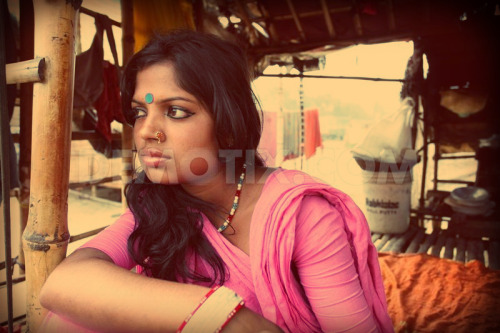“Sabila beta, please - please come to your senses!” Mahmubah watched her daughte
“Sabila beta, please - please come to your senses!” Mahmubah watched her daughter storm off in a huff, refusing to look back at her. Was this really her daughter? The one who thought her family was the universe, who would giggle as her mother and aunties braided her everlong hair, who would listen intently to stories of the dainee and annoyed her older cousins by being the favourite student of their jadukara elder (“she’s not even supposed to be here!”) and dreamed of mastering the difficult and arcane mysteries that were shopnojyoti? Would her daughter really dare be so biadab to her elders, so stubborn and petulant? Well, Sabila was always stubborn, but normally she was stubborn for a good reason - like wanting to learn more and more, or wanting to help with the fishing and cooking. But wanting to run off and marry a Shafiq? That was not a good reason. “Maa! I have come to my senses! He is a good man, and we will have a good life. You can have a good life too, can’t you see?” “A GOOD LIFE?! Is your life not good enough already, being with your family, living a simple village life?” No, that goddamned Indrajala Cadet College corrupted her, taught her that her people’s ways were faltu and messy and old-fashioned, taught her that the only good way to do jadu was to be like the Bilatis: quick fixes and short sentences. Taught her that the only good jadukara were the Shafiqs, because they owned land, and her people deserved to be ruled over because they were transient and spent more time in the rivers. Casi, those Shafiqs called them. Peasant. Country bumpkin. Gravel and poison in their mouths. Sabila looked back at her mother, not quite knowing which age to be: her body feeling out twenty, her mind fresh out of school and primed for a new adventure, her eyes with the same earnest twinkling from infanthood. Did her mother want her to be an independent adult or did she still see her as the child with the braids? “Look, Maa! We live hand to mouth, hoping Allah will bless us with fish and rice, having to move around all the time because the cyclones and floods take everything away! Not even the strongest jadu of our kind can conquer Mother Nature! We are being destroyed, Maa - but this is our chance to survive.” “IT IS THAT MAN’S FAMILY THAT IS DESTROYING US!” If Mahmubah was not too tired she would have slapped Sabila. “They pulled us from the rivers, our soul and blood, and made us come to land. They took away our connection to the water - that is why the cyclones and floods wash everything away. They have stopped paying respect to the water; instead they seek dominion and control, as though they are Gods. As though they are the dainee! They and their Godforsaken school, wanting to control jadu, no respect for where it came from - the WATER!” “You sent me to that school!” yelled Sabila. When she was not even ten, a couple of staff members from the relatively-new Begum Indrajala Jadukara Cadet College had visited their bank of the river to look for students. They were impressed enough by Sabila’s talents and sheer enthusiasm to offer her a full scholarship. Sabila thrived in that school: her love of learning flourished as she was exposed to a wealth of subjects and skills, most of which she would never have imagined back in the river. She picked up Tantramantra and Ayurveda with ease, having had a lot of practice back home and relished the jadunai subjects like Mathematics and Art and English since they were so new and fresh to her. (To her puzzlement the subject of shopnojyoti was barely mentioned anywhere in her studies - if it did it was only referenced as a lost, possibly mythical art. Sabila did spend some time trying to investigate what her teachers really knew about shopnojyoti, but after one too many deadends she dropped this line of inquiry and focused on regular schoolwork.) Her absolute favourite school subject was Sahitya, Literature - a curious blend of jadu and jadunai. The works and writers she studied had achieved acclaim amongst the jadunai, even outside Bidesh, winning awards with strange names like No-Bell. Yet these works were so clearly written by jadukara, so infused were they with magic and power - the heart of jadu beating through the mastery of the Bengali language. It was through Sahitya that Sabila lost her heart: to Faizal, a young man maybe a year or two older than her, as energetic and macho and boisterous as any other male his age - except he was a Shafiq. One of the Zamindars, the landowners. Probably a heir to the school. He wasn’t as passionate about learning as Sabila, indeed even with his family status he didn’t stand out much, but he was funny and had big ambitions and treated Sabila like a queen. Faizal watched Sabila recite some Chakravarti poetry at a joint recital, one of the few times the boys’ and girls’ sections came together, and fell in love with her beauty and depth of passion. Their depth of passion sparked a love affair that had to be kept relatively secret during their school years - can’t destroy your dignity and honour, you know - but after years of passing poetry back and forth and cheering on sports games and late-night walks with mishti and moonlight, Faizal proposed marriage. “You are my sultana,” he said. “Let me give you the good life, be part of the Shafiqs, never a care or worry in the world. Be a real sultana.” Sabila had been surrounded by Shafiqs - most of the school consisted of them or their peers, landowner families with privilege. There was even the odd Bilati or two, the occasional Cinadeshi and Japani, and a few who were like her - poor river people on scholarships. The Shafiq students didn’t talk to her much, but Sabila admired them all the same: their grace, dignity, ease with power. Their elegance and beauty. Their chatter about those strange exotic cities they would go to on holiday - London and New York, Alexandria and Istanbul. They had everything they ever wanted. They never needed to struggle. Sabila remembered years of barely being able to eat when cyclones and floods would wreck their makeshift towns (a fairly common occurrence). She remembered the clothes getting threadbare, there was only so much that repair spells could do. She remembered late nights staring out onto the rivers, wondering why their boats would never travel further into the oceans, is that not what boats were for? What was her life for, if not to explore with elegance and grow with grace? How could her mother not see how much better her life would be married to a Shafiq? Did her mother not want her to have a good life? “We sent you to school because we wanted you to have a chance at a good life.” Thought so! Just as Sabila was about to jump in: “But beta, being a Shafiq? They are different from us. They don’t respect us. They are of the land; we are of the water. Let those of the land return to the land, and those of the water return to the water.” “Didn’t you say all jadukara come from the water? That includes the Shafiqs. That includes Faizal.” “THE SHAFIQS HAVE BETRAYED THE WATER! They have forgotten about the ways of the water! Did you not listen to me, baccha?! They turned their backs on the water to rule the land! They turned their backs on us, on you!” “I AM NOT A BACCHA!” Sabila was furious. Her mother saw her not just as a child, but a baby. Who was she to preach about respect when she wouldn’t respect her own daughter? “Faizal did not choose to be a Shafiq,” said Sabila after a (slightly futile) attempt to calm down. “But he chose me. He could have chosen anybody, even another Shafiq or a Bilati girl, but he chose me. He wants me to be his sultana, Maa. He wants me to have the good life.” “Does he want us to have the good life?” asked Mahmubah, losing patience with her daughter’s insolence. “You don’t just marry one person, you marry into their family, their community. Is he going to provide for us, or is he just going to rule over us and make us suffer so that we can provide for your sultana life?” “He will not make you suffer - I will not let him make you suffer.” Sabila was losing patience with her mother’s obstinance. “Please, Maa. Faizal is a good man. Just at least meet him. I promise, he’s not like all the other Shafiqs who don’t care. He cares. He cares about me and he will care about you.” Sabila sat by her mother’s feet. She knew her mother had reason to doubt; she did lose her father, after all, to mysterious circumstances that left her mother barely able to take care of her even with support from extended family. But Faizal was different. She’s sure of it. If only her mother would give her a chance… “Okay. I will meet him. But I cannot promise that I will approve. I need to make sure he is good enough for my daughter.” Sabila kissed her mother’s feet in gratitude. Believe me, Maa - we will not let you down. [[picture sources: articles on demotix (1, 2) and sfgate about the Bede people - nomadic river-gypsies of Bangladesh that practice magic. (I’m aware that the term “gypsy” is a slur against Romani people; however, almost all my sources about the Bede people (inc from Bangladesh) use “river-gypsy” as a descriptor and I’m not sure what other terms are favoured by that community since they’re not English-speaking.My computer can’t really deal with most graphics software and the originals of the demotic photos are about 55GBP each, so please excuse the massive watermark.Sabila is the name of the woman whose photo I used to talk about a Bangladeshi magic wedding. Mahmubah and Faizal are named after my parents.]] -- source link
Tumblr Blog : shafiq28.tumblr.com
#shafiq28#bangladesh#bidesh#river gypsies#potterverse#fanfiction#harry potter#class struggle#pov historical#family#history


